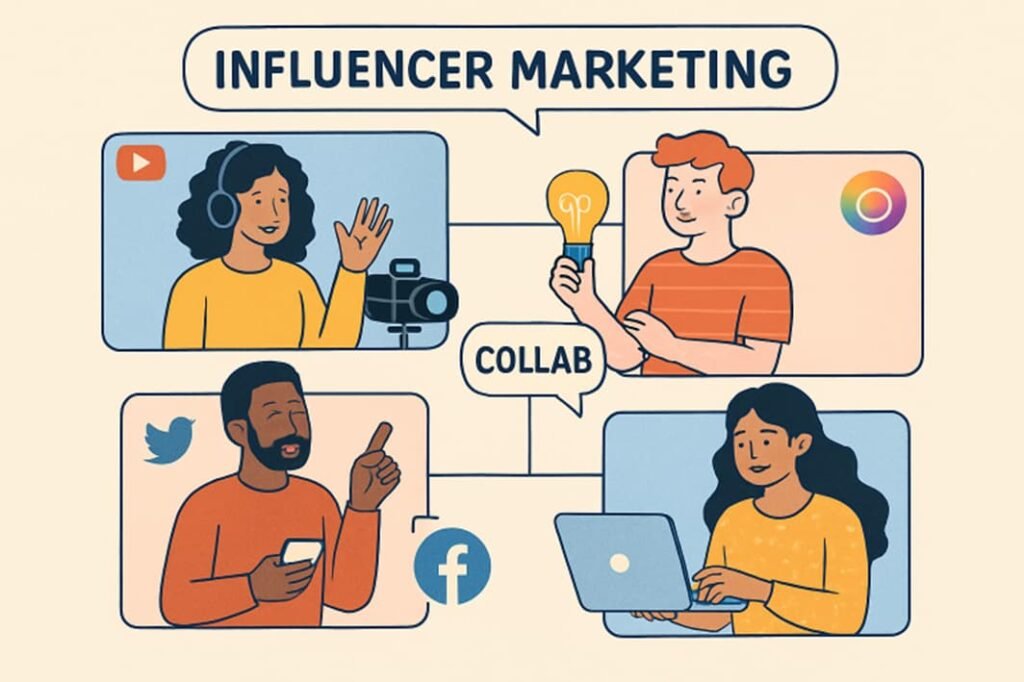Influencer collaborations are rapidly evolving in the digital era, with 2025 set to bring even greater sophistication and innovation to this marketing channel. Brands now prioritize strategic partnerships, advanced analytics, and technology-driven campaigns to reach and engage audiences more effectively than ever before. For organizations and creators hoping to thrive, leveraging influencer marketing tools and services can help navigate these new dynamics and maximize campaign impact across various channels. Today’s leading influencer marketing tools and services not only identify ideal partners but also streamline campaign management, optimize content performance, and drive data-informed decisions for both brands and content creators. By utilizing these sophisticated solutions, companies can focus on building authentic partnerships, ensuring sustained growth in a crowded digital landscape.
AI-Powered Influencer Matching
Artificial intelligence is quickly transforming the influencer collaboration landscape. AI algorithms can analyze social media metrics, historical campaign data, content sentiment, and audience demographics to pair brands with influencers who closely match their values and audience targets. This kind of intelligent matching goes beyond vanity metrics like follower counts; it ensures genuine engagement and enhances authenticity, which is vital for lasting success. By assessing engagement patterns, content relevance, and even psychographics, AI-powered platforms help brands find not just influencers, but true brand advocates who can drive meaningful results.
Hyper-Personalized Audience Targeting
The age of generic influencer content is fading. In 2025, the spotlight is firmly on hyper-personalization, where brands and influencers collaborate to deliver content tailored to niche audiences. This shift stems from consumers’ preference for relatable, hyper-relevant content over mass-market messaging. By partnering with creators deeply embedded in specific online communities—whether it’s eco-conscious consumers, tech enthusiasts, or local food lovers—brands can deliver campaigns that resonate and convert better. The deep connection between influencers and their followers creates trust and increases conversion potential, outperforming broad-spectrum strategies.
Cross-Platform Content Strategies
Consumers now engage with content across a diverse ecosystem: TikTok trends, Instagram Stories, YouTube reviews, and Pinterest boards often complement each other in a single buyer’s journey. In response, successful influencer collaborations are executing content strategies that span multiple channels, ensuring a consistent and memorable brand presence. Coordinated cross-channel promotions amplify reach, reinforce key messages, and allow for creative content repurposing. For example, a campaign might combine an unboxing video on YouTube with behind-the-scenes Instagram Stories and product inspiration posts on Pinterest, yielding broader and deeper audience engagement.
Long-Term Partnerships Over One-Off Campaigns
Rather than quick-burst campaigns, brands in 2025 are investing in enduring influencer relationships that evolve over time. This approach not only builds credibility among audiences—who increasingly value transparency and consistent messaging—but also allows for the co-creation of campaigns rooted in mutual trust. Long-term partnerships empower influencers to become authentic brand storytellers, resulting in loyal customer communities and more successful outcomes. Regular communication, ongoing value sharing, and focusing on shared goals set these collaborations apart from transactional, short-lived influencer engagements.
Performance-Based Collaborations
ROI-driven models have become the gold standard for influencer collaborations. Brands are pivoting from flat-fee payment structures to performance-based compensation that rewards tangible results, such as clicks, conversions, or sales. This model ensures accountability and drives both brands and influencers toward common objectives. Measurement tools—ranging from affiliate links to advanced analytics platforms—allow brands to track campaign success in real time and adjust strategies quickly, creating a culture of continual improvement and optimized spending. Performance-driven partnerships are crucial for sustainable influencer marketing growth.
Embracing Live Shopping and Real-Time Engagement
Live shopping events are transforming social commerce in 2025. Originating in Asia and now gaining traction worldwide, these real-time video shopping experiences harness the persuasive power of influencers to drive on-the-spot purchases. Social platforms such as Instagram, TikTok, and YouTube have invested heavily in live-streaming features, making it easy for influencers to conduct Q&As, showcase product demos, and respond to viewer questions instantly. This blend of entertainment and retail immerses consumers in the brand experience and often leads to higher conversion rates compared to traditional e-commerce models. As noted by CNBC, live shopping will continue to shape the future of influencer-driven commerce.
Sustainability and Social Impact Partnerships
Modern consumers expect brands—and their influencer partners—to champion sustainability, inclusivity, and social responsibility. Authentic collaborations centered on positive impact resonate strongly with values-driven audiences, who are more likely to support brands involved in ethical initiatives. Influencers can help amplify these efforts by raising awareness, fundraising, or sharing transparent content about how a brand is making a difference. For brands, aligning with advocates of social good creates not only a competitive edge but also a lasting, positive legacy in their industry.
Conclusion
Advanced technology, audience-first strategies, and authentic relationships define the future of influencer collaboration. Brands that welcome AI-enabled tools, embrace hyper-personalization, invest in cross-platform visibility, nurture lasting influencer partnerships, measure impact through performance-driven models, explore real-time engagement, and champion sustainability will emerge as leaders in the evolving influencer landscape. Staying agile and informed will be critical as these trends reshape influencer marketing through 2025 and beyond.


